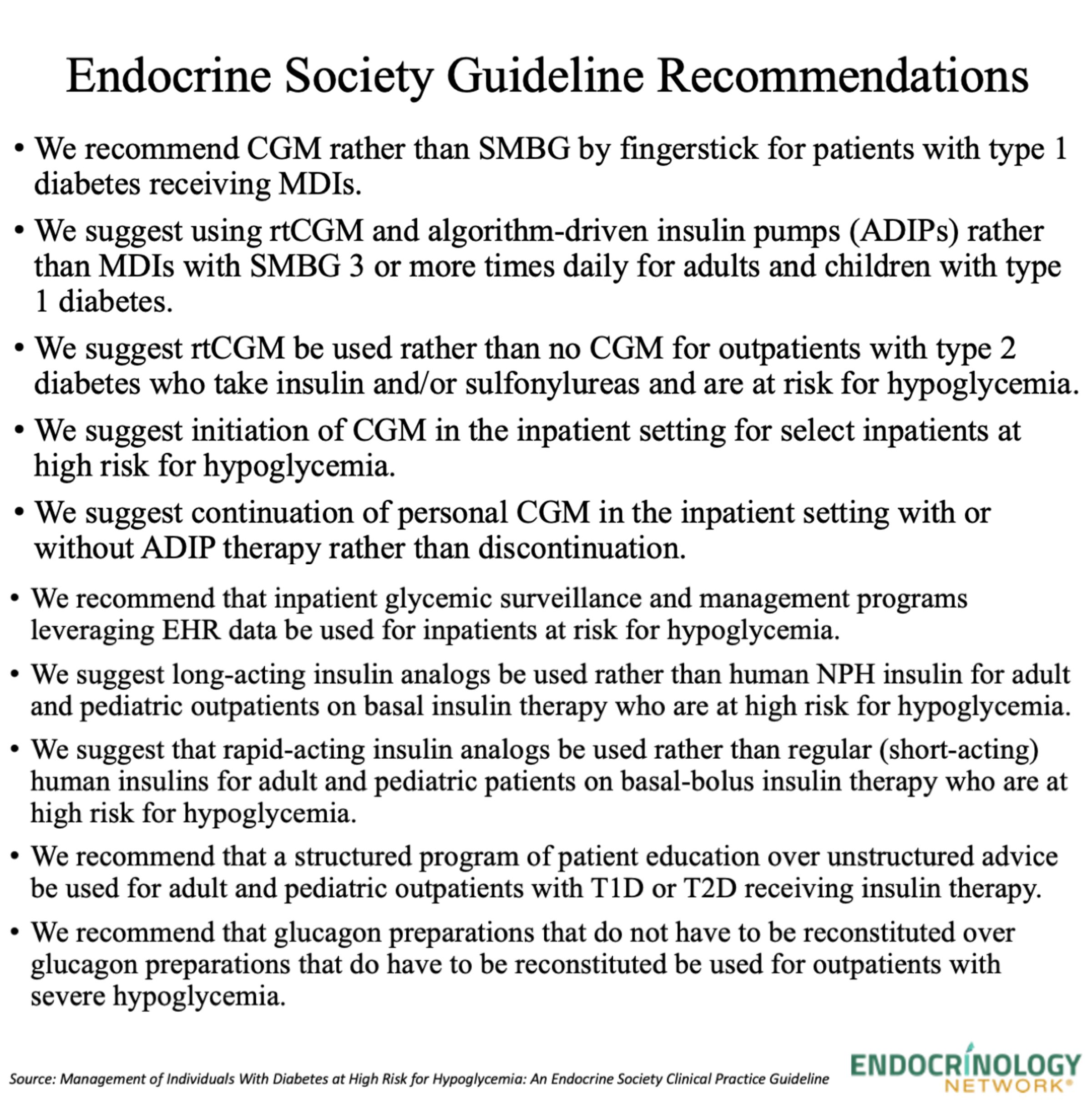Article
Endocrine Society Releases Updated Guidance for Management of Hypoglycemia
Anthony McCall, MD, PhD

The Endocrine Society has released a new clinical practice guideline aimed at outlining optimal evidence-based strategies for management of people with diabetes considered to be at high risk for hypoglycemia.
Released on December 7, the guideline, which was created by a multidisciplinary, 10-person team, is expected to be published in the March 2023 print issue of The Journal of Clinical Endocrinology & Metabolism and is cosponsored by major organizations, including the American Association of Clinical Endocrinology (AACE) and the American Diabetes Association (ADA).
“CGMs and insulin pumps have been much more commonly used in the last decade among people with diabetes including children, and there are new forms of glucagon available. We had to update our guideline to match these developments in the diabetes field,” said chair of the guideline writing committee Anthony L. McCall, MD, PhD, professor of endocrinology and metabolism at the University of Virginia, in a statement from the Endocrine Society.

At 34 pages in length and citing 256 references, the guideline represents an update to the Endocrine Society’s 2009 recommendations, which included 7 recommendations. In the current guidelines, the guideline writing committee created the guideline after identifying 10 clinical questions related to hypoglycemia in people living with diabetes, with a focus on use of continuous glucose monitoring, insulin pumps, insulin analogs, glucagon use, and patient education. Upon identifying these questions, investigators performed systematic reviews for each and used GRADE methodology to assess the certainty of evidence and create their recommendations.
In addition to these recommendations, the writing committee detailed future research considerations for each of the 10 questions. The writing committee also provided a review of the recently updated definitions of hypoglycemia levels, which were presented in a 2018 consensus statement. Of note, DiabetesSisters, the Pediatric Endocrine Society, and the Society for Hospital Medicine joined the AACE and ADA in cosponsorship of the document.
In their release, the Endocrine Society highlighted this guideline is a product of its Clinical Practice Guideline Program, which was created with the intent of providing endocrinologists and other clinicians with evidence-based recommendations in the diagnosis, treatment, and management of endocrine-related conditions.
“People with diabetes, their caregivers and diabetes specialists will all benefit from our guideline with a better understanding of best practices and interventions,” McCall added.
This document, “Management of Individuals With Diabetes at High Risk for Hypoglycemia: An Endocrine Society Clinical Practice Guideline,” was published in The Journal of Clinical Endocrinology & Metabolism.




